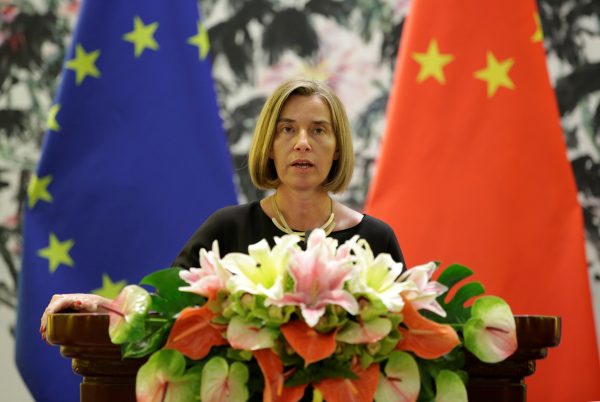So far, 17 EU member states have joined or applied for membership in the AIIB.
According to its President Jin Liqun, this is a sign of the AIIB’s growing attractiveness as a leading international financial institution. The AIIB is making significant progress in its outreach efforts. It signed a Memorandum of Understanding on 1 April 2017 with the New Development Bank on infrastructure and sustainable development. And the forthcoming second annual meeting of the Board of Governors in South Korea this June will host more than 1500 delegates from the AIIB’s membership, partner institutions as well as civil society organisations.
In less than two years since its official establishment, the AIIB has promoted itself as a serious and consistent alternative to Western-led international financial institutions, most obviously the World Bank and the Asian Development Bank (ADB). Its growing attractiveness derives in particular from China’s intention to present the AIIB as an institution able to reform and complement the post-World War II global economic governance domain promoted by the Bretton Woods institutions.
More clearly, the decision to launch the AIIB came as a direct result of China’s growing frustration together with that of other developing countries over only playing a marginal role within the existing international financial system.
Why then have some EU member states decided to join the AIIB if China’s initiative represents an effort to promote a distinctive but to some extent post-Western model of global financial governance?
Two main reasons stand out.
First, China is rapidly recasting itself as a leading player within multilateral institutions. China is still far from overtaking the United States in terms of global economic predominance. But the AIIB is just one among many initiatives supported by China in the field of economic governance. The Belt and Road Initiative (B&RI), the Silk Road Fund, the Regional Comprehensive Economic Partnership (RCEP) and the BRICS New Development Bank are all representative of a new, sophisticated and to some extent alternative approach supported by leaders in Beijing in order to implement China’s multilateral diplomacy and foreign economic policies at the global level.
Second, and given this context, the EU and its member states are becoming aware of the need to pragmatically interact with China as a key strategic partner, particularly within the field of new multilateral economic initiatives such as the AIIB.
The AIIB may indeed overlap with other EU initiatives like the Juncker Plan. And the international community may not look all that favourably on China’s hegemonic role in the AIIB, with 29.8 per cent of the voting share and 34.6 per cent of the money invested in the bank held by China. Yet the AIIB has already declared its intention to collaborate with other leading multilateral development banks such as the World Bank, the ADB and the European Bank for Reconstruction and Development.
The majority of financed projects within the AIIB are expanding in parallel with the B&RI development plan through Southeast Asia, Central Asia and the Middle East, making China’s investment plans and foreign economic polices stronger than ever before. The EU should learn how to deal with China with a single voice while strengthening its own role as a global player within Chinese-led global institutions and regional initiatives. The EU needs to prioritise its interests at the global level, and contend with China’s foreign economic policy and strategy towards the European continent.
China and the EU must further cooperation in order to overcome discrepancies around their investment strategies in the field of global economic governance. The AIIB represents a first attempt by China to provide alternative solutions in the global financial sector while promoting a more proactive foreign policy at the international level. Both the EU and its member states must not underestimate the economic and financial benefits that may come from closer engagement with China.
Silvia Menegazzi is Postdoctoral Research Fellow at LUISS Guido Carli University in Rome.

